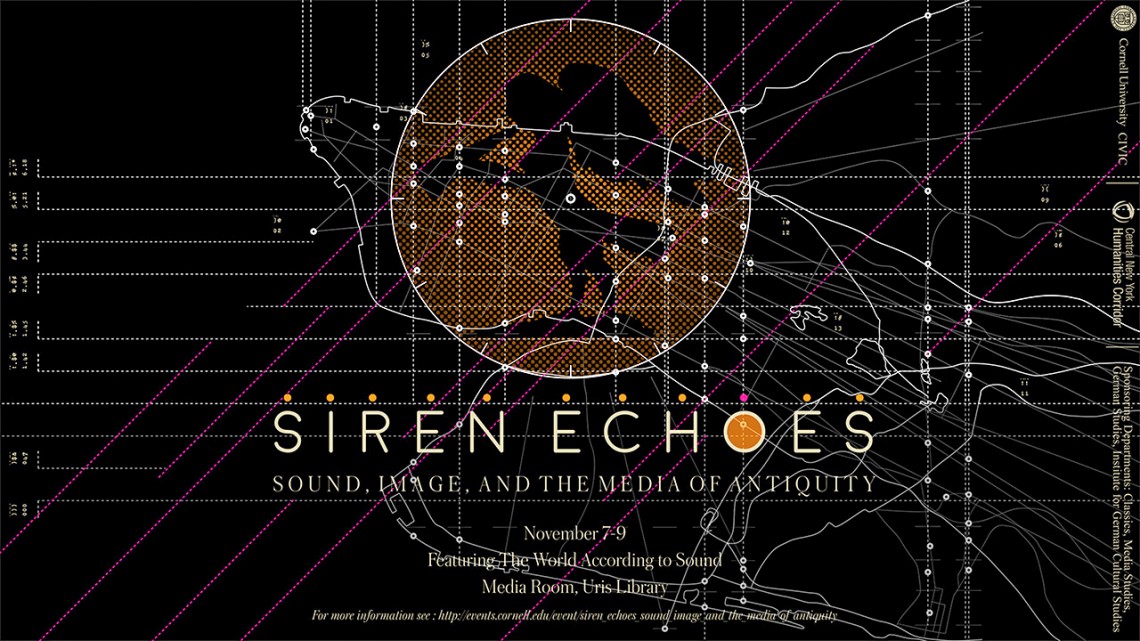
The poster for “Siren Echoes: Sound, Image and the Media of Antiquity.”
Media studies scholars to attend ‘Siren Echoes’ conference
By Kathy Hovis
Scholars from Germany and the United Kingdom, as well as numerous U.S. universities, will visit campus Nov. 7-9 for the first media studies conference sponsored by CIVIC (Critical Inquiry into Values, Imagination and Culture), the provost’s Radical Collaboration initiative focused on the humanities and the arts.
“Siren Echoes: Sound, Image and the Media of Antiquity” is being organized by Verity Platt, professor of classics and history of art; Athena Kirk, assistant professor of classics; and Erik Born, assistant professor of German studies.
The theme for the conference highlights one of Cornell’s strengths in the field of media studies, Platt said.
“We are attentive to the long historical span of media, going right back to the ancient world,” Platt said. “Often, media studies departments tend to be focused on emerging and new media, or tend not to look back beyond the 19th century.”
Many media theorists, she said, have been interested in the early history of writing and the way ancient philosophy uses models of media transmission.
“There is already a rich discourse about media in the ancient world,” she said, referring to disciplines including Classical, Near Eastern and Medieval studies.
The title of the conference captures the diversity of approaches within media studies, Born said. “Sirens” can refer to either mythological sea creatures, mermaids, early acoustic devices or modern electronic sirens, while the word “echo” also has numerous meanings, from the name of a mythological mountain creature described in Ovid’s “Metamorphoses” to a form of early modern verse to modern electronic echoes.
The conference will kick off Nov. 7 with a welcome address and performance by The World According to Sound co-creators Chris Hoff ’02 and Sam Harnett, who are on campus this semester as artists-in-residence with Cornell’s interdisciplinary media studies initiative.
Friday’s panels include Antiquity in Media; Sounds of the Anthropocene; and Sacred Resonances. Saturday’s panels focus on Image, Medium and Light; Media Pathologies; and Genealogies of the Image.
Although media studies scholars have diverse interests, Born said, one shared interest is the rich material culture of antiquity. “Another shared interest is engaging with cutting-edge work in media theory that’s currently coming out of Europe. That’s part of the reason we’ve invited so many guest scholars, especially from Germany,” he said.
A second conference is planned for the spring, Platt said, with a greater focus on contemporary media studies.
Kathy Hovis is a writer for the College of Arts and Sciences.
Media Contact
Get Cornell news delivered right to your inbox.
Subscribe
